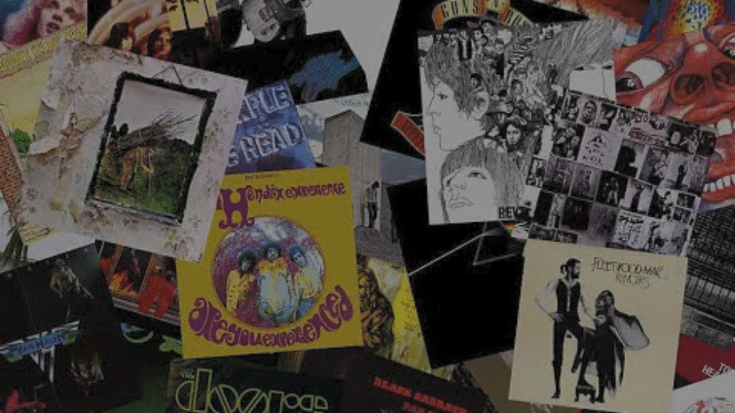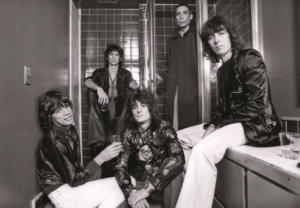The Decline of Rock Album Sales: Is the Genre Losing Its Appeal?

via Sea of Tranquility / YouTube
Rock music has been an essential part of popular music culture since the 1950s. However, recent trends suggest that its appeal might be in decline. Critics have noted that rock music has experienced a conspicuous lack of representation in top critics’ lists of the best songs. Furthermore, the shrinking youth audience for rock is mirrored in North American album sales, dropping ten points from 50.8% in 2008 to 26% in 2014. We explore the decline of rock music and its diminishing presence in the music panorama.
The Pronounced Decline in Rock Music’s Influence
The decline in rock music’s influence seems more pronounced than in previous generations, where rock has periodically faced criticism and declarations of its demise. The trend extends well beyond critics’ opinions, with young audiences gravitating towards mainstream pop, hip hop, and electronic music instead. The trend is comparable in North America and Europe, where Alternative Rock festivals were once vibrant, but now increasingly struggle to attract audiences, while Electronic festivals, with DJs instead of live acts, have become increasingly popular.
Rock has traditionally been a staple in critics’ yearly Top Ten lists of the best songs, yet the number of rock songs included has diminished over the years, scarcely reaching more than two songs per year. Pop, on the other hand, has experienced continuous growth and acclaim, with 40% of styles represented in the best songs lists. Black music, such as hip hop and R&B, has a representation of 29%, and electronic/dance with 11%. The percentage of rock songs on critics’ lists has steadily decreased, indicating a shift in taste and a reduced emphasis on rock as a dominant genre.
Although rock music continues to have a dedicated following and musicians creating rock ‘n’ roll, it no longer carries the same weight and relevance in the eyes of critics and young listeners alike. But why is it that the genre is losing its appeal amid the younger audience? Critics may argue that rock’s musical language has become exhausted and fails to offer anything new. However, the longevity and impact of current trends, which are taking over rock’s place, are yet to be determined.
View this post on Instagram
The Evolution of Musical Styles and Rock’s Changing Position
In analyzing the evolution of styles by decade, many trends emerge. Rock accounted for 38% of styles represented in the Top 100 of acclaimed songs lists in the 1950s and spectacularly rising during the 1960s and 1970s, peaking in the latter decade, with more than half of the acclaimed songs (58%). Rock had a significant decline during the poppy 1980s (but still with a remarkable 42%) but had a notable recovery during the grungy 1990s. Then the decline, and Rock collapsed during the first half of the 2000s.
Pop music accounted for 46% of styles represented in the Top 100 of acclaimed songs lists in the 2010s, continuously rising on the critics’ acclaim from the 11% of the 1950s, with intermediate peaks on the 1960s, 1980s, and 2000s. Black (African American) music had always been acclaimed by the critics, with a high percentage in the 1950s. However, it declined quickly until the 1970s and has experienced a slow but continuous rise from then on. Other styles, such as regional music and folk, experienced a continuous decline from the 1950s, except for a mild rise during the 1970s thanks to the Singers/Songwriters.
What Happened To Our Rock And Roll?!
The introduction of Electronic/Dance as the fifth big genre saw a timid debut during the 1970s, with continuous growth, reaching 24% of the styles represented in the Top 100 of acclaimed songs lists in the 2010s. With the introduction of this new genre, there are no dominant styles today, and the music scene is quite fragmented. Black music, pop, and Electronic/Dance obtain quite similar percentages, with rock going from its prior dominance to the fourth position in the last decade.
In conclusion, the decline of rock music’s influence in critics’ lists and the shifting preferences of audiences, particularly towards pop, hip hop, and electronic genres, indicate that the genre is losing its appeal. While critics may argue that rock music has become stagnant and lacks innovation, it remains to be seen if new and innovative styles will have staying power or are just passing trends. The decline in album sales appears to reflect a shift in audience preferences. While rock music will continue to have a loyal following, it no longer has the same weight and relevance among critics and young listeners.


















